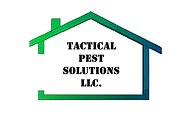Understanding Tick Dangers in Western Massachusetts
- David Kelley
- May 14, 2025
- 4 min read
Updated: Jun 3, 2025
Ticks are tiny parasitic arachnids that feed on the blood of mammals, birds, and reptiles. They are known carriers of various diseases that can severely affect both humans and pets. Notable diseases transmitted by ticks include Lyme disease, Rocky Mountain spotted fever, and anaplasmosis.
According to the CDC, Lyme disease cases in the United States have been steadily increasing since the 1990s. In Massachusetts, there were over 5,000 reported cases in 2019 alone, making it one of the most endemic states for tick-related diseases. It's crucial for homeowners to be educated about tick habitats, behavior, and the diseases they transmit.
The Ideal Habitat for Ticks
Ticks thrive in wooded and grassy areas, making Western Massachusetts an ideal environment for them. These pests are most active during spring and early summer but can remain a danger through fall. Homeowners should regularly check for ticks after spending time outdoors, especially in areas where ticks are commonly found.
The Impact of Ticks on Health
The health risks associated with tick bites are significant. Lyme disease, for example, can lead to severe symptoms such as joint pain, fatigue, and neurological issues if left untreated. The longer a tick is attached, the higher the chance of disease transmission.
Statistics show that approximately 300,000 people in the U.S. are diagnosed with Lyme disease each year. In Massachusetts, it's estimated that 1 in 10 adult ticks carries the bacteria that cause Lyme disease. Children and pets are particularly vulnerable to tick bites, making it essential for families to be vigilant.

Recognizing Tick Bites
Recognizing the signs of a tick bite can be crucial for timely intervention. Common symptoms of tick-borne diseases include:
Rash or redness at the bite site.
Fever and chills.
Fatigue and muscle aches.
If you notice any of these symptoms after being bitten by a tick, it is essential to seek medical attention immediately. Early diagnosis can improve treatment outcomes.
Effective Tick Treatment Options
When it comes to tick treatment, there are several options available to homeowners.
Chemical Treatments: These sprays are applied to your yard to kill and repel ticks. While they can be effective, choosing pet- and family-friendly products is crucial. Tactical Pest Solutions offers safe chemical treatments designed specifically to minimize risks to your family and pets.
Natural Treatments: For those looking for chemical-free solutions, natural treatments using essential oils or diatomaceous earth can be effective. However, they may require more frequent reapplication than chemical treatments.
Tick Inspection and Removal: Regularly checking your family members and pets after outdoor activities is key. If you find a tick, it's important to remove it carefully using tweezers. Grasp the tick as close to the skin as possible and pull straight out without twisting to reduce the risk of infection.
Professional Services: If dealing with a severe tick infestation, consider hiring professionals. Tactical Pest Solutions offers comprehensive tick treatment plans tailored to the unique needs of Western Massachusetts homeowners.
Preventing Tick Infestations
Prevention is always better than treatment. Here are effective strategies to reduce the likelihood of ticks infesting your property:
Maintain Your Yard: Keep grass mowed, remove leaf litter, and trim shrubs to minimize tick habitat. This decreases the likelihood of ticks nesting too close to your home.
Create Barriers: Establish a wood chip or gravel barrier around your property’s edge to create a physical barrier between wooded areas and your lawn.
Use Tick Repellents: When engaging in outdoor activities, apply a tick repellent containing DEET, picaridin, or oil of lemon eucalyptus on exposed skin and clothing.
Dress Appropriately: Wear long sleeves, long pants, and tuck your pants into your socks when heading into tick-prone areas. Light-colored clothing makes it easier to spot ticks.
Education: Teach family members about the dangers of ticks and how to recognize them. Awareness is crucial in prevention.
Tactical Pest Solutions: Our Commitment to Safety
Tactical Pest Solutions stands out for its family-friendly approach. Our tick treatment services utilize products that are safe for both children and pets. We prioritize eco-friendly solutions that effectively address the tick problem without compromising the safety of your family.
Our trained professionals understand the local tick landscape and adapt treatments to suit the unique characteristics of Western Massachusetts properties. With a commitment to excellence, Tactical Pest Solutions offers ongoing support and education to help homeowners maintain a tick-free environment.

Taking the Next Steps
As a homeowner in Western Massachusetts, staying informed about ticks and taking proactive measures is essential. By understanding the dangers, applying effective treatments, and utilizing preventive strategies, you can significantly reduce the risk of tick infestations.
To take the next step in protecting your home and family from ticks, consider reaching out to Tactical Pest Solutions. Our expert team is ready to assist with tailored tick treatment plans that ensure your property remains a safe place for outdoor fun.
You don’t have to face tick dangers alone. Together, we can create a safer environment for you and your loved ones. Visit us at Tactical Pest Solutions to learn more about our services and request a consultation.
Tick treatment is not just about getting rid of the pests; it’s about ensuring your family can enjoy the beautiful outdoors of Western Massachusetts without worry.
Final Thoughts on Tick Awareness
Understanding how to protect yourself, your family, and your pets from ticks is vital. As the seasons change and more outdoor activities arise, make it a point to take action. Implement preventive measures. Regularly check for ticks, and educate your loved ones about the risks associated with them.
Actively engaging in tick prevention can significantly reduce the likelihood of infestations. By prioritizing safety and remaining informed, you can ensure a tick-free environment for your family while enjoying all that Western Massachusetts has to offer.





Comments